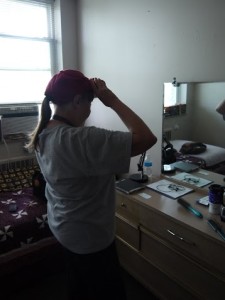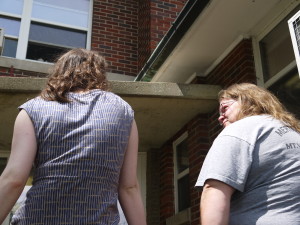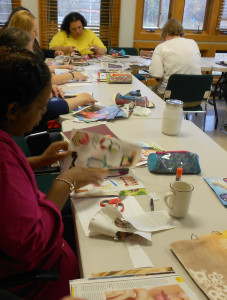Individualized Support Essential to Success in Transitional Housing
Significant changes in the homeless service provider system have brought clients with higher levels of need to CMC. We now see more chronic mental health symptoms, depression, and anxiety that has gone untreated for a long period of time. Ninety percent of residents coming to CMC are accessing mental health or substance abuse services and getting the help they really need, often for the first time. “When you live that life for so long…you think that’s the way life is. I finally got to that place where I know I do deserve to have that nice place, I do deserve an education,” says former resident and Aftercare client, Rochel.
“It is most effective to address mental health issues first, and then we can focus on social, life and coping skills. This is a key step in helping someone get to the point of maintaining permanent housing,” says Housing Program Manager, Jennifer Tibbetts.
 Because of residents’ chronic mental health and physical issues, daytime case management staff spends more time arranging long-term support. Tibbetts explains, “When you are dealing with depression and anxiety, it can prevent people from taking the first step out of fear and worry. Having someone who can walk beside them in that first step is crucial.
Because of residents’ chronic mental health and physical issues, daytime case management staff spends more time arranging long-term support. Tibbetts explains, “When you are dealing with depression and anxiety, it can prevent people from taking the first step out of fear and worry. Having someone who can walk beside them in that first step is crucial.
In FY13, CMC received a grant to provide more one-on-one contact and hired a part-time support services coordinator, Chelsea DeLarm. Although every woman has barriers unique to herself and her situation, many women must confront issues of negative body image, the need to be perfect, and anxiety over participating in new experiences.

“They help you. They give you the tools you need to succeed but they are not going to do it for you. You have to put the work in yourself. If you don’t put anything into it, you’re not going to get anything out of it. You have to help yourself in order to make change.” ~Rochell
“My interactions with the women tend to be away from offices and desks. When I first meet a new resident, I invite her to join other residents and myself for yoga or swimming at the YMCA. The first couple of classes are nerve-wracking experiences. Women are self-conscious about their appearance and their physical ability level,” says DeLarm. “I encourage the women to push themselves outside of their comfort zones to attend physical fitness activities or participate in volunteer experiences where they can build confidence in themselves. I get to support women as they explore new opportunities to enrich themselves.”
Read more of our FY13 Annual Report.
Check out these photos from CMC’s Transitional Housing Program on Facebook!

